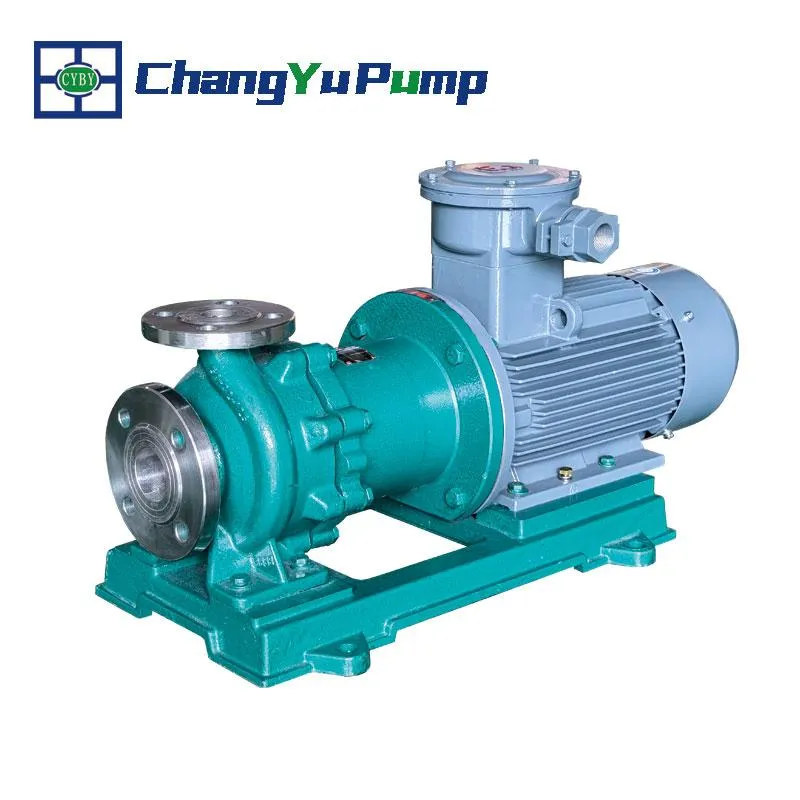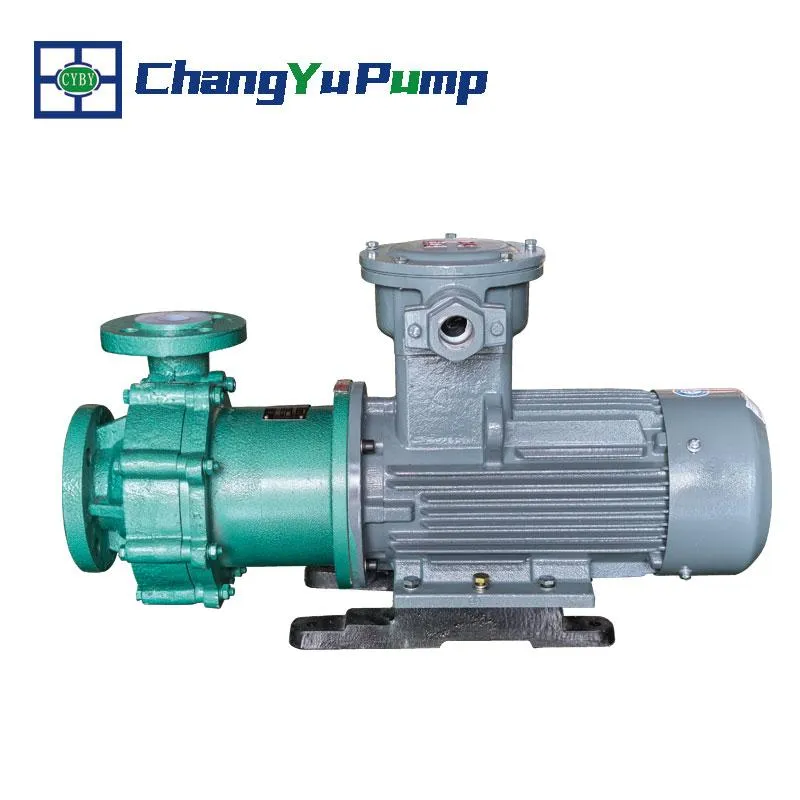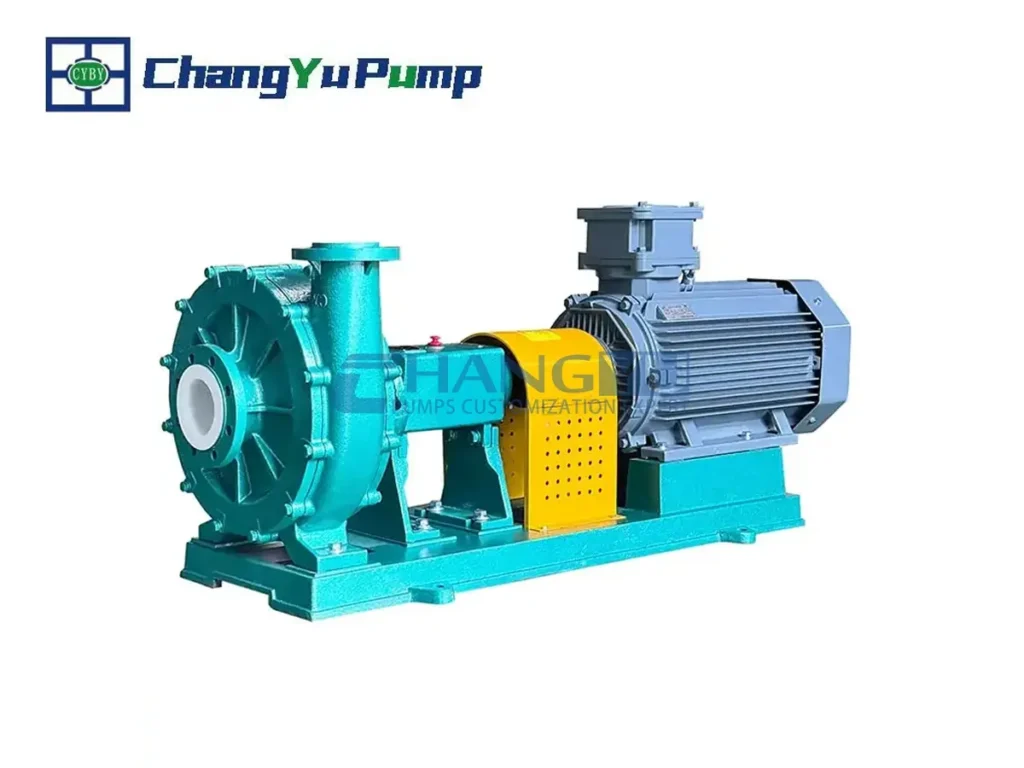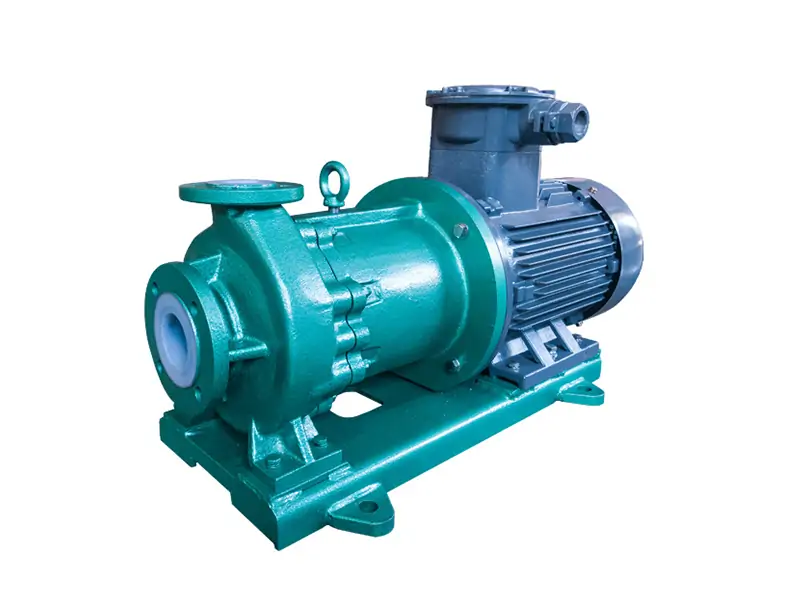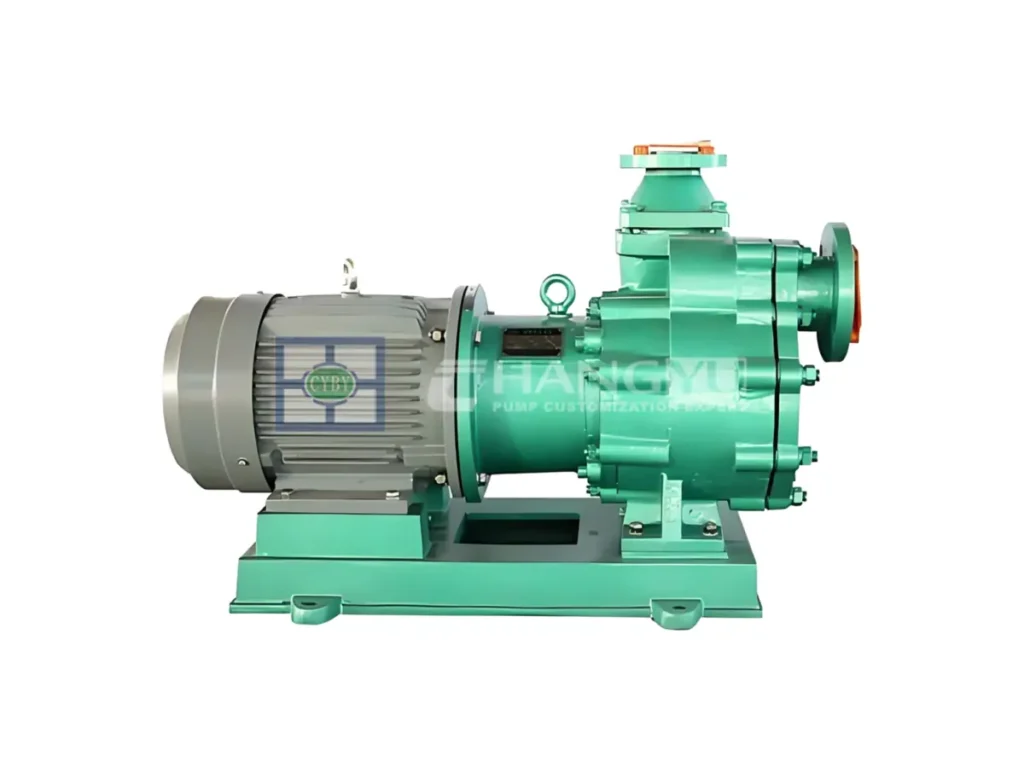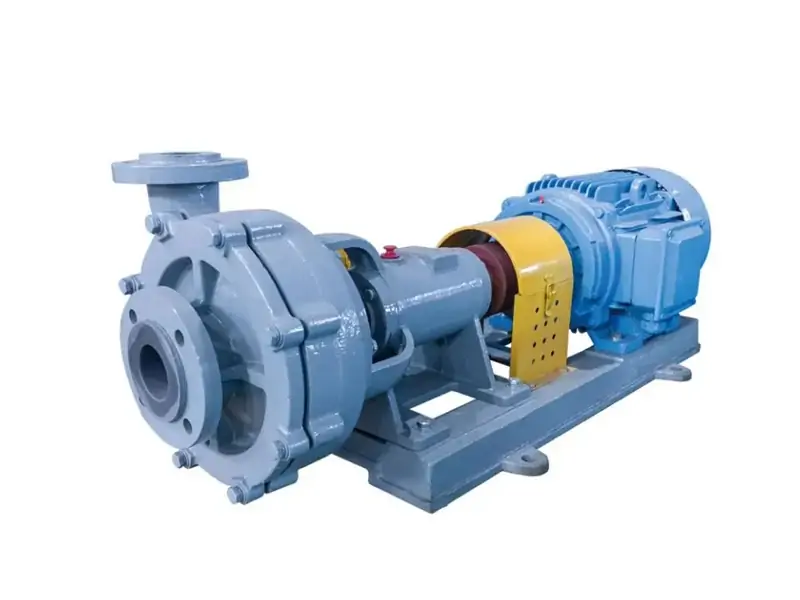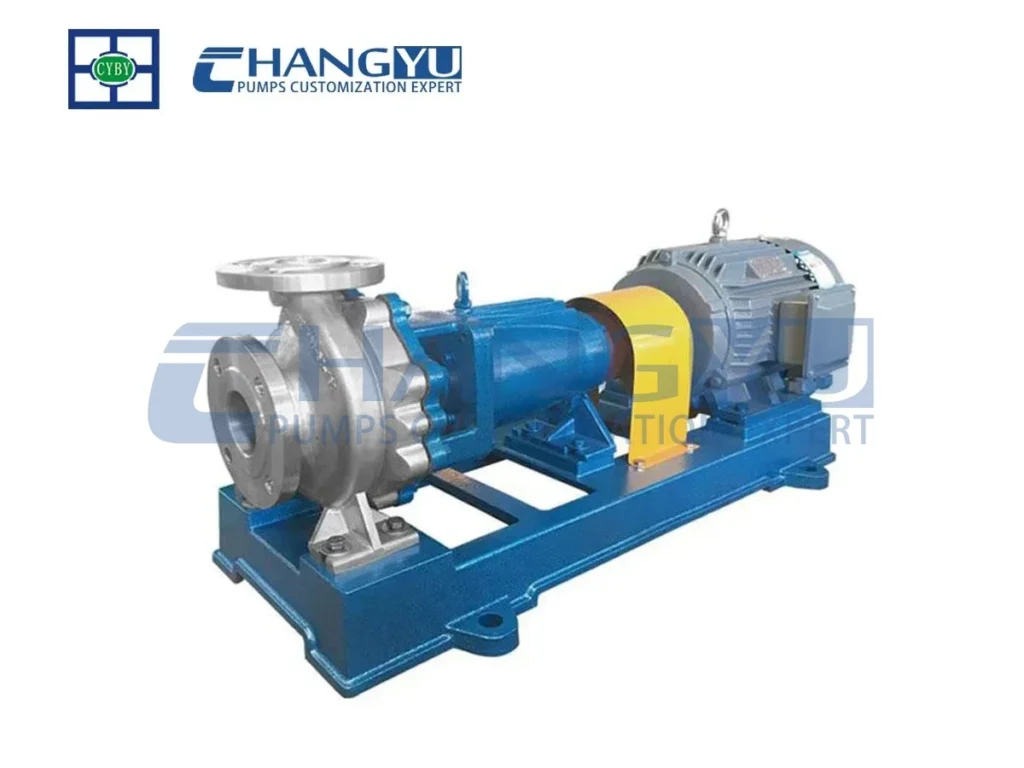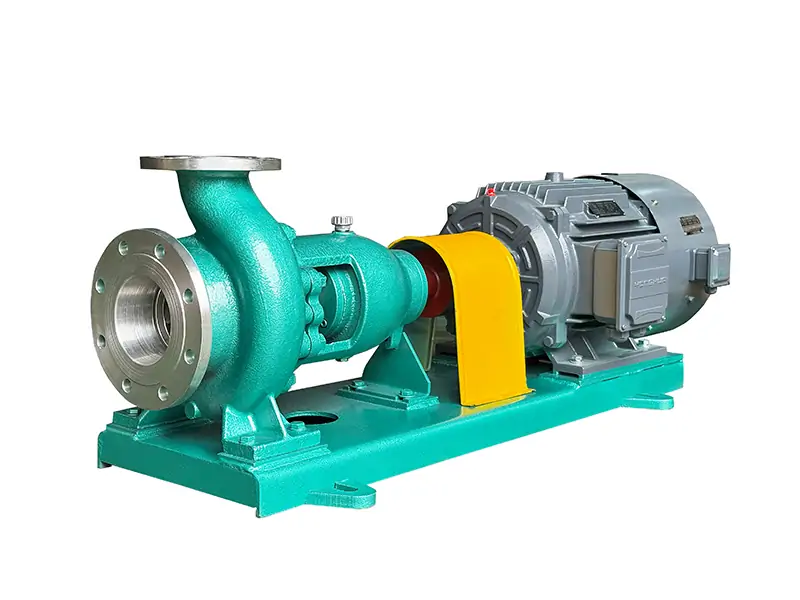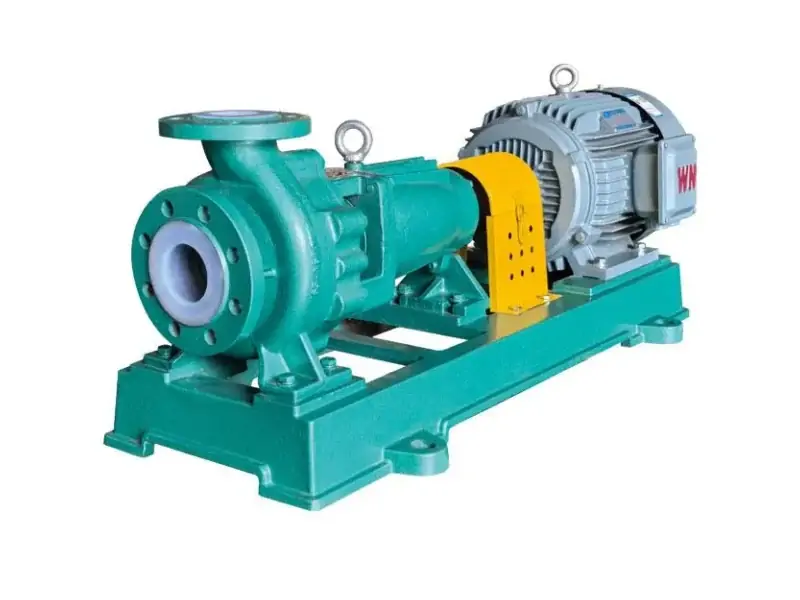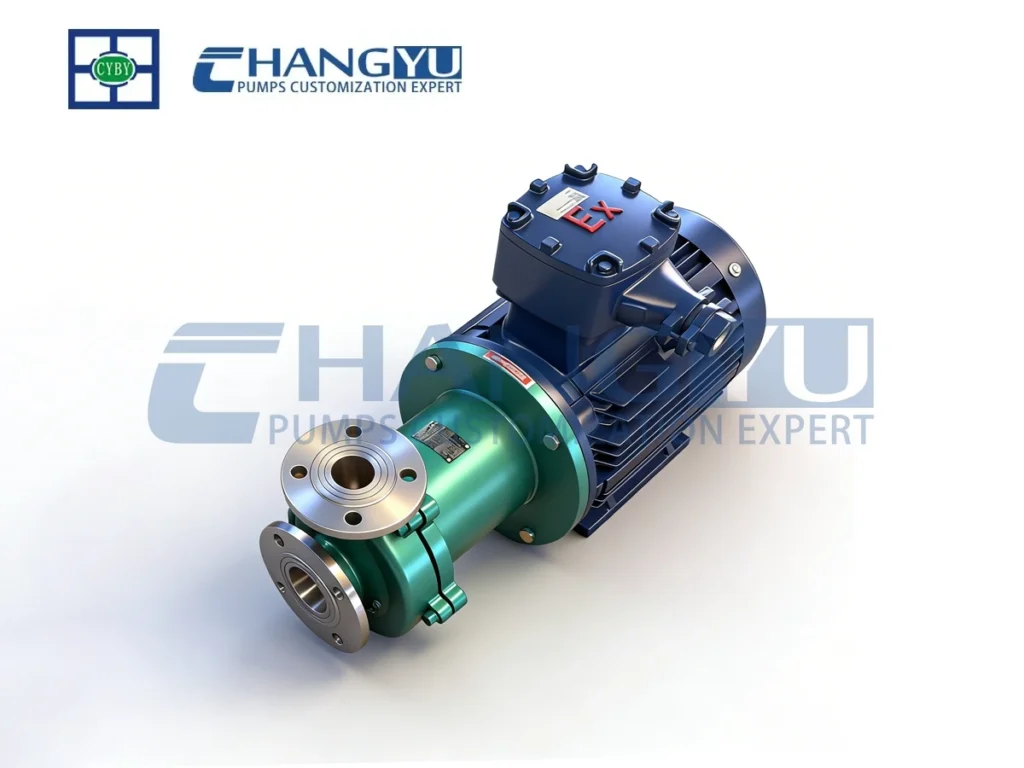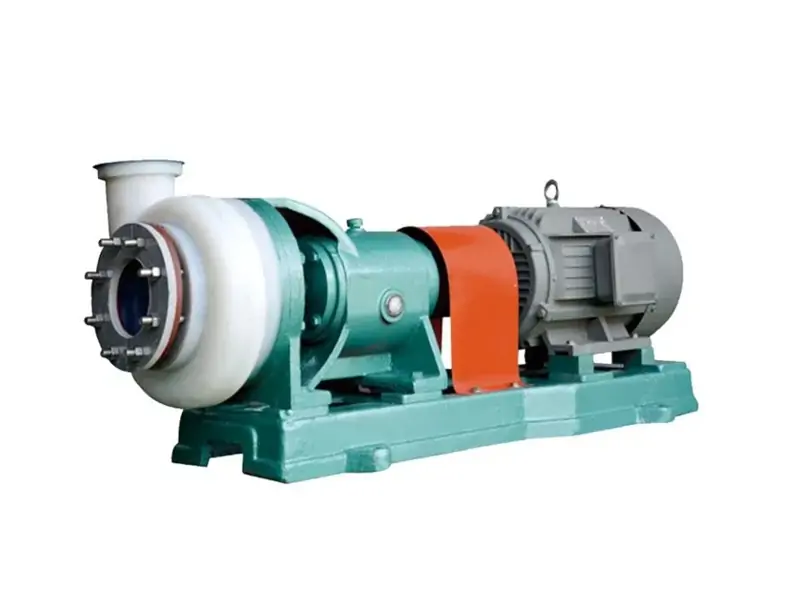CYQ Series Concentrated sulfuric acid transfer magnetic pump
Magnetic pump coupling drive, no shaft seal, zero leakage. Therefore,CYQ Concentrated sulfuric acid transfer magnetic pump is particularly suitable for conveying flammable, explosive and toxic liquids.Such as concentrated sulfuric acid, concentrated nitric acid, caustic soda, etc.
|
Flow Range : |
0.8~400m³/h |
|
Head Range: |
3~80m |
|
Power : |
0.18~55Kw |
|
Temperature : |
-20-180℃ |
Features
- Adopting molded fluorine lining technology, the thickness of the fluorine lining layer is 8-15mm, corrosion-resistant and will not fall off.
- Magnetic coupling drive, dynamic seal is changed to static seal, and the medium will not leak during operation.
- Closed impeller design, high efficiency.
- All flow-through parts are made of fluoroplastics, suitable for conveying corrosive fluids such as acids, alkalis, and salts of different concentrations.
- The inner and outer magnetic steels are made of rare earth magnetic steel, with strong magnetic torque and no demagnetization.
Specifications
Q1: What is the difference between a magnetic pump and a centrifugal pump?
A1: Magnetic pumps and centrifugal pumps have significant differences in their working principles and applications. Magnetic pumps use magnetic coupling to transmit power, eliminating the need for traditional mechanical seals, which results in a leakage-free design that is particularly suitable for transporting toxic, volatile, or corrosive liquids. Their design isolates the internal components from the external environment, reducing the risk of leaks and enhancing safety. In contrast, centrifugal pumps rely on a rotating impeller to generate centrifugal force, pushing the liquid from the center of the pump to the outside, making them suitable for high-flow, low-viscosity liquid transfer. However, they may face leakage risks when handling hazardous or high-temperature liquids. Overall, magnetic pumps are more appropriate for applications where the safety of the medium is critical, while centrifugal pumps are more commonly used for general fluid transfer.
Q2: What are the precautions for using magnetic pumps?
A2: When using magnetic pumps, several key considerations should be taken into account to ensure safe and efficient operation. Firstly, it is crucial to always maintain an adequate liquid medium in the pump to prevent dry running, as a lack of liquid can lead to overheating and damage to the components. Additionally, regular checks on the sealing conditions and electrical connections of the pump should be conducted to ensure there are no leaks or poor contacts. The appropriate pump materials should be selected based on the properties of the medium to avoid chemical corrosion and wear. Lastly, during installation and operation, it is important to follow the manufacturer’s guidelines and avoid exceeding the pump’s rated performance to ensure long-term stable operation. By adhering to these precautions, the lifespan of the magnetic pump can be maximized, and its efficiency can be improved.
Q3: What are the applications of magnetic pumps?
A3: Magnetic pumps are widely used in various fields primarily due to their excellent sealing performance and safety. In the chemical industry, they are employed for transporting corrosive and toxic liquids, ensuring no leaks occur when handling hazardous media. In the pharmaceutical and biopharmaceutical sectors, magnetic pumps are used to transfer medicines and biological fluids, preventing cross-contamination and ensuring product purity. Additionally, they find applications in the food and beverage industry, particularly in the transport of dairy products and beverages, to ensure hygiene and safety. In the environmental protection sector, magnetic pumps are utilized for wastewater treatment and the handling of various waste liquids. Overall, due to their efficiency and safety features, magnetic pumps play a vital role in liquid transfer applications with strict requirements.
Q4: Why can’t the magnetic pump run dry?
Q4: The primary reason that magnetic pumps cannot run dry is that they rely on the liquid medium for cooling and lubrication. In normal operating conditions, the liquid not only provides power but also reduces friction and heat generation between the internal components of the pump. If the pump operates without liquid, the internal components can become damaged due to overheating, especially the magnetic coupling and other critical parts, which may experience significant wear or failure. Additionally, the lack of liquid can cause the impeller to make direct contact with the pump casing, further exacerbating wear and potentially leading to rapid equipment failure. Therefore, to ensure the safe and effective operation of magnetic pumps, it is essential to avoid running them in a dry state.
Q5: What is the working principle of magnetic pump?
A5: The working principle of a magnetic pump is based on the design of magnetic coupling, which transmits power without the need for traditional mechanical seals. The pump structure typically consists of a drive section and a driven section, where the motor in the drive section generates a rotating magnetic field that drives the internal magnetic coupling to rotate. This magnetic coupling is connected to the pump impeller, allowing the liquid to be drawn in and pushed out through the outlet due to the impeller’s rotation. Throughout this process, the liquid medium isolates the inside of the pump from the outside, preventing any leakage. Since there are no mechanical seals, magnetic pumps are particularly safe for transporting toxic, corrosive, or volatile liquids, while also reducing maintenance needs and extending the lifespan of the equipment. This efficient, leak-free design has led to the widespread use of magnetic pumps in various industrial applications..
transfer magnetic pump Manufacturer and Supplier
Changyu Pump boasts 22 years of OEM/ODM experience, holding ISO 9001, CE, and ATEX certifications alongside over 25 patented technologies. As a trusted industrial pump manufacturer and supplier, we specialize in delivering reliable chemical pump solutions for corrosive, high-temperature, and demanding applications. If you’re seeking a reliable centrifugal chemical pump manufacturer and supplier, contact our team anytime for customized solutions. Submit your inquiry now.
We can according to actual working condition, choose different configuration, provide an accurate solution. Technical consulting, please contact us!
Related Products
Request a free quote
Please fill in the details of your pumped liquid, including flow, head, specific gravity, and temperature, so we can recommend the best pump and provide a precise quote.

